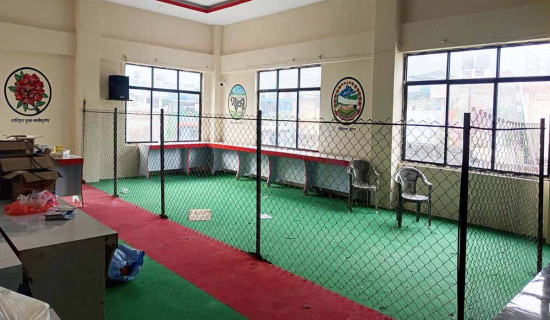- Tuesday, 3 March 2026
Recognising Unpaid Care Work
Every morning, she wakes before the rest of her family. She boils water for tea, sweeps the aangan, prepares breakfast, and ensures her children’s uniforms are ironed. After sending them to school, she tends to her aging in-laws, cooks lunch, and manages the household—laundry, cleaning, shopping—all without a break. By evening, she serves dinner and cleans up. When exhausted, her fatigue is dismissed as "just what mothers do." Her labour fuels her home, yet she has no salary, no recognition, and no retirement plan. If she falls sick, the house crumbles into chaos. If she asks for help, she’s met with resistance—"Your mother and grandmother did it without complaining." Like millions of Nepali women, she works the longest hours but remains invisible in economic statistics.
This story is not unique. Progress has touched us—we have stepped into workplaces, earned degrees, and pursued careers. But instead of reducing our burden, it has only doubled. A working woman in Nepal is expected to excel at her job and still manage the household seamlessly. After an eight-hour shift, she comes home to another shift—cooking, cleaning, and caregiving. Her male counterparts, even if they work the same hours, might seldom be expected to share the load. Unpaid labour, especially caregiving, is the backbone of Nepal’s economy. It allows men to work uninterrupted, ensures children are cared for, and supports the elderly—yet, it is invisible in GDP calculations. Without this invisible workforce, the formal economy would collapse. But instead of compensation or support, women are left with exhaustion and unacknowledged labour.
Estimates suggest that globally, 16.4 billion hours are spent on unpaid care work daily, equivalent to 2 billion people working eight-hour days without pay. If valued at an hourly minimum wage, unpaid domestic and care work would total $11 trillion, or 9 percent of global GDP. In Nepal, this economic reality is ignored, and unpaid care work continues to be dismissed as “women’s duty.”
Gender socialisation begins early in Nepal, shaping care work as a woman’s responsibility rather than a shared one. From childhood, girls are conditioned to help in the kitchen while boys focus on studies. A daughter staying late at school is questioned—“Who will help your mother at home?”—while a son is seldom burdened with such expectations. This ingrained mindset follows women into adulthood. Even highly educated women face the expectation that no matter how far they progress professionally, they must never neglect their “primary role” as caregivers. Many give up promotions, settle for part-time work, or leave the workforce—not out of choice, but because the burden of care is theirs alone.
The consequences are stark: fewer women in leadership, financial dependence on male family members, and limited participation in economic decision-making. Women’s aspirations are often met with an unspoken condition: you can have ambition, but only after the household is taken care of.
Unpaid care work is not just a personal burden—it is an economic issue ignored by policymakers. Every day, women across Nepal perform countless hours of unpaid labour that sustains households and communities. Yet, in the eyes of the economy, this work does not exist. Women who dedicate their lives to caregiving—whether as mothers, daughters, or wives—receive no compensation, no pension, and no social security. If they are widowed, abandoned, or unable to work due to age or illness, they are left financially vulnerable. Unlike formal employment, there are no safety nets for unpaid care work.
Isn’t it time we asked: Shouldn’t care work be recognised in economic planning—through subsidised childcare, paid caregiving leave, or pension schemes for lifelong caregivers? Until then, women will continue shouldering an invisible yet indispensable economy without security or support. The stories of women across Nepal might differ—some may have supportive partners, some may live in progressive communities where their care work is appreciated. But the majority of women’s stories remain the same: they are expected to manage both paid work and unpaid care work, with little to no support. This needs to change.
Recent cultural waves, like the movie Mrs., have sparked important conversations about the pressure women face to balance careers, family, and self. The film resonated with many because it portrayed a truth they live: the unspoken, overwhelming load women carry every day. But we can’t rely on art and entertainment alone to spark change. It’s time to demand real action. It’s time for men to step up—not as an act of charity but as a responsibility. Men must share the load, not just in household chores but in nurturing children, providing care, and supporting women’s careers. The question is not whether we can afford these changes—it’s whether we can afford to keep ignoring the contributions women make. The future depends on us embracing care work as part of our shared responsibility.







-square-thumb.jpg)








